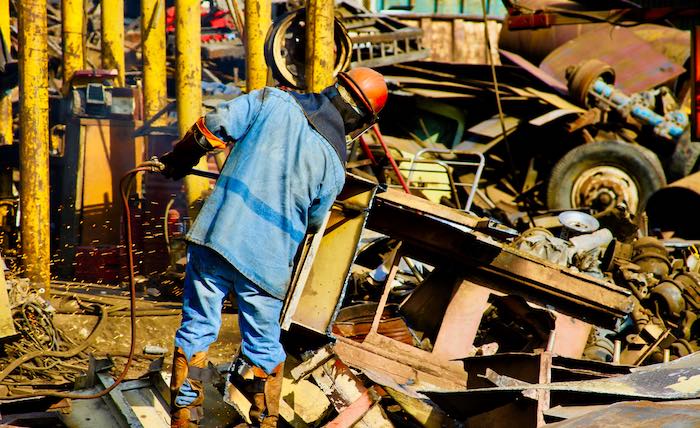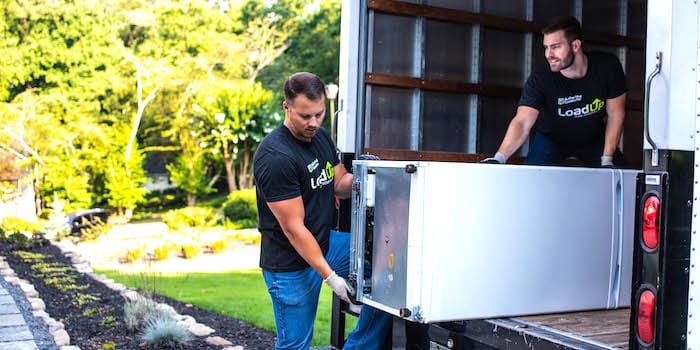
Recycling has its fair share of benefits & problems.
Are you wondering if recycling is simply rubbish? Recycling reduces the need to source virgin materials and the amount of carbon dioxide emitted into our atmosphere.
However, costly problems with recycling plastics and other materials have come up, as well as questions about whether recycling is worth it. Alas, the low value of scrap and high costs of recycling make that answer: not really.
Below is an overview of this situation in the recycling industry and answers to questions like “does recycling actually get recycled?” But first, let’s look at not-so-obvious benefits of recycling to the environment and how we can help make recycling not rubbish.
Is Recycling Important:
**Click to auto scroll by section
- Is Recycling a Sham?
- Recycling Benefits on the Environment
- Is Recycling Bad for the Environment?
- China’s Effects on Our Recycling Process
- The Recycling System is Overwhelmed
- Economic Impact of Trash in Recycling
- Problems with Recycling Plastic
- Communities are Abandoning Recycling
- How You Can Make a Difference
Is Recycling a Sham?
To put it it plainly, recycling isn’t the number one solution to global warming. As far as our options go, planting a tree has a stronger, more cost-effective benefit to the environment, but that isn’t to say recycling doesn’t reduce carbon pollution. Just not as much as you’d think.
Environmental Benefits of Recycling
Proper recycling benefits the environment in ways that many people overlook. For example, it can keep a range of harmful chemicals from reaching the water supply. Most waste treatment facilities are simply not equipped to remove the majority of chemicals, and this means that harmful chemicals are not simply “washed away” but instead make it into the water supply.
Once in the water supply, chemicals then make their way into food when farms water their crops. In a very real sense, recycling can help keep chemicals out of our bodies.
♻️ Help by learning once and for all what can go in the curbside recycling bin and what can’t go.
Is Recycling Bad for the Environment?
Unfortunately, recycling isn’t exactly what many of us believe recycling to be and there are disadvantages to recycling. Recycling is not bad for the environment, but some argue that the recycling process wastes more resources than it saves.
The idea of recycling is to reduce the need to harvest virgin fossil fuels and natural resources and lower greenhouse gas emissions in order to produce a new product. However, statistics show that less than 10% of plastics are actually reused and the amount of energy put into sorting these trashed items can sometimes turn out to be a waste of time.
The “recycling game” has changed in recent years due to a variety of developments. At the top of the list is the situation with China.
What is Going on With China?
China is no longer accepting low-grade plastics and unsorted recycled paper. The country recently announced that the recycling they were receiving from the United States was not sorted to necessary specifications.
Disruptions to the Recycling Process
While at first this might not sound like a big deal; the truth is that this development has led to far more rubbish going into landfills. Much of what we previously sent to China is simply not recyclable in the United States.
The end result is that there will be real environmental consequences. China’s ban on low-grade types of plastics and unsorted paper exposed an inherent flaw in the recycling system.
The Recycling Industry Is Overwhelmed
The recycling system is not currently optimized for the challenges it faces. A key fact is that when an item enters recycling sites and it is in any way contaminated, that item is simply removed from the system.
Sorting trash for recycling isn’t cost-effective
Trash that accidentally makes its way into the recycling system contributes to pollution in another way. Non-recyclable trash that goes into the recycling system still has to be processed and removed, and that means energy consumption is still high.
Whether it is slowing down the recycling system so that it becomes less energy efficient or transporting trash out of the recycling system, there has been a major increase in the carbon footprint of recycling.
Need Curbside Junk Recycling? WE CAN HELP ❯
Trash in the Recycling System Causes Chaos
The problem of trash making its way into the recycling system runs deeper still. If trash breaks during the recycling process, it can contaminate other recyclable materials. The end result is that one item of trash mixed into the recycling can make a collection of recyclables unusable.
The Economic Impact
Trash and rubbish that makes its way into recycling plants has serious economic impacts as well. Workers must spend extra time dealing with recycling problems caused by garbage.
Hauling away and paying to dispose of trash mixed into the recycling system likewise comes at an economic cost. Equipment can be damaged and broken by trash getting mixed into the recycling system as well. Ultimately, these factors can combine to make recycling more problematic, less cost-effective, and far less profitable for cities and towns.
Most Plastic Isn’t Recycled; the World Pays the Price
We’ve covered one unpleasant truth about recycling: the recycling system isn’t as efficient as it could be. But sadly, there is another unpleasant truth about recycling.
According to a study published in Science Advances in which global plastic use was examined, it was discovered that mankind’s recycling of plastic has been woefully inept.
Does recycling actually get recycled?
The study found that only a mere 9% of all plastic ever produced has been recycled. That means that the overwhelming majority of plastic, a staggering 91% has not been disposed of properly. This 91% number likely does not match up with people’s perception of plastic use.
Another eye-opening statistic from the study is that 79% of all trash in landfills is of plastic origin. Every year a truly shocking 8 million metric tons of plastic is dumped into the ocean.
Mankind is using a mind-boggling amount of plastic. Since plastic’s widespread use began in the 1950s, 8 billion metric tons of plastic have been produced. Note, that number is 8 billion metric tons and not simply 8 billion pounds.
❓Did you know: Americans throw away more than 35 billion plastic bottles and 5 trillion plastic bags every year. When thrown into a landfill, plastic bottles can take more than 450 years to decompose and plastic can bags can take up to 1,000 years! LEARN MORE ❯
Protecting Our Water Supply from Plastics
The amount of plastic consumed in just one lifetime is beyond belief and is now presenting a threat to marine life, and in turn, the food chain itself. Plastic contamination is showing up in high levels in a range of aquatic life.
The fact is that most of us don’t realize where our recycling, especially our plastic recycling is going. Plastic recycling is not being recycled as we hoped or believed. Instead, most plastic is going into landfills.
Once in landfills, plastic often makes its way into the water supply and then in turn into the food supply. Even if you are purifying your water, plastic contamination is making its way into your food via farming.
Some Communities Are Abandoning Recycling
Further adding to the dilemma is the fact that recycling isn’t as meaningful and useful as it once was. In short, we are facing a recycling crisis, and many people don’t yet realize that many communities have actually abandoned their recycling programs.
Now, more than ever before, it is vital for individuals to find ways to reduce their plastic consumption in their homes.
How You Can Make a Difference
Reducing your plastic consumption overall can reduce the load on the recycling industry. You can avoid single used plastic items and opt to buy products that have been created using recycled materials, such as sweaters and sneakers, or home building products that are built using recycled material. These are all good examples of waste management ways to reduce your plastic consumption.

LoadUp Practices Eco-Friendly Disposal of Picked-Up Materials
One of the single best ways to deal with recycling is to have LoadUp pick up your recycling raw materials. Part of what makes using LoadUp an environmentally savvy choice is that every item we process is disposed of in the best way possible.
Book Curbside Recycling BOOK JUNK RECYCLING ❯
When you are disposing of recyclable materials, working with LoadUp represents an excellent way to reduce your carbon footprint and help keep plastics and other potentially harmful compounds out of the environment and perhaps even out of your own body.
In the end, recycling isn’t rubbish, but the recycling system is flawed and under considerable stress. Moving forward, humanity collectively needs to find a smarter, safer, and healthier way to deal with the wide range of diverse and potentially toxic trash we produce.
Related from the Trash Talk Blog:

